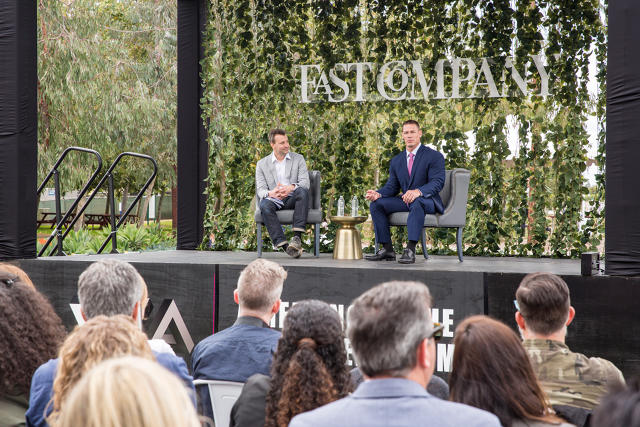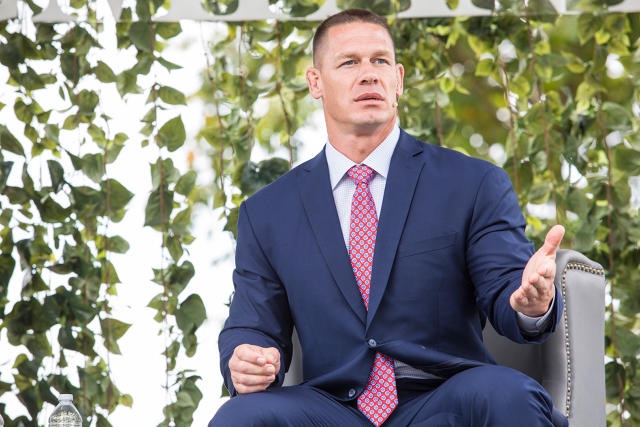Authenticity has become a buzzword that has been steadily losing its flavor because brands and marketers rarely assess its true meaning tailored to their products.
But WWE superstar John Cena is having none of it.
“The reason that everybody wants to attach themselves to being authentic [is] because the word ‘authentic’ means, pardon my French, you give a shit,” Cena said in a conversation with Co.Create Editor Eric Alt today at Fast Company‘s L.A. conference. “But ‘authentic’ is thrown around as ‘think outside the box’ and all the other B.S. we hear.”
The key to true authenticity, according to Cena, is having a deep-rooted passion for what you do. And that goes beyond just loving what you do—but also knowing the ins and outs of it, as well.

“The first question I ask myself is, do I want to do it? I think the first question a lot of folks ask themselves is, is this good business? Does it pay me a lot of money? That is short-term success in life,” Cena said. “I know [the WWE has] half a billion social followers. I know our business model to drive more people toward the network. I know our t-shirt sales. I know our consumer fan base. I know our attendance for live events. I know we’re not deep enough business-wise in China so I’m doing what I can to get us into China. I’m not just a dude who laces his shoes up and slides into the ring—I love the brand. And if I’m not active in the brand physically, I will be active in the brand mentally. And I do not align myself with properties that I don’t feel that passionate about. To me, that’s what being authentic is all about.”
Cena has been transitioning that level of authenticity to projects outside of the WWE, such as his new Fox reality show, American Grit, which pairs the physical challenges of shows like American Ninja with the intense mental and social trials of Naked and Afraid and Survivor, with a heavy dose of military culture.
In addition to his producing credits, Cena has also crossed over onto both the big screen and small screens, starring in the movies—Sisters, Trainwreck, and Daddy’s Home, along with a cameo on one of the final episodes of Parks & Recreation. Cena’s turn as an actor stems from his desire to be more than his character in the WWE, and as it turns out, those 14 years in the ring have trained him well.

“As a 39-year-old adult, I certainly would love to be a bad guy or to push the limits of the broadcast, but that is not my job. My job is to work for a company that produces PG television and do the best I can. In redefining my brand, I’m looking for opportunities outside of the WWE because I realize I have to play within certain goalposts,” Cena said. “When I came in [to the WWE] in 2002, it was more like the Jerry Springer show and now it’s really a good family program. So I’ve had to change the tools in my toolbox and adapt to my surroundings yet stay authentic to myself. My experiences in the wrestling ring have set me up for what I’m trying to do outside.”
But, as Cena is adamant to point out, none of what he’s doing in the WWE and beyond would be possible without listening to his fans.
“When you empower the audience to be a part of the show it is a tool in your toolbox that you must not ignore,” Cena said. “A lot of our guys [in the WWE], because they want to put on what they think is a good performance for themselves, totally ignore the most valuable tool in the toolbox and that is the paying consumer.”






Fast Company , Read Full Story
(66)